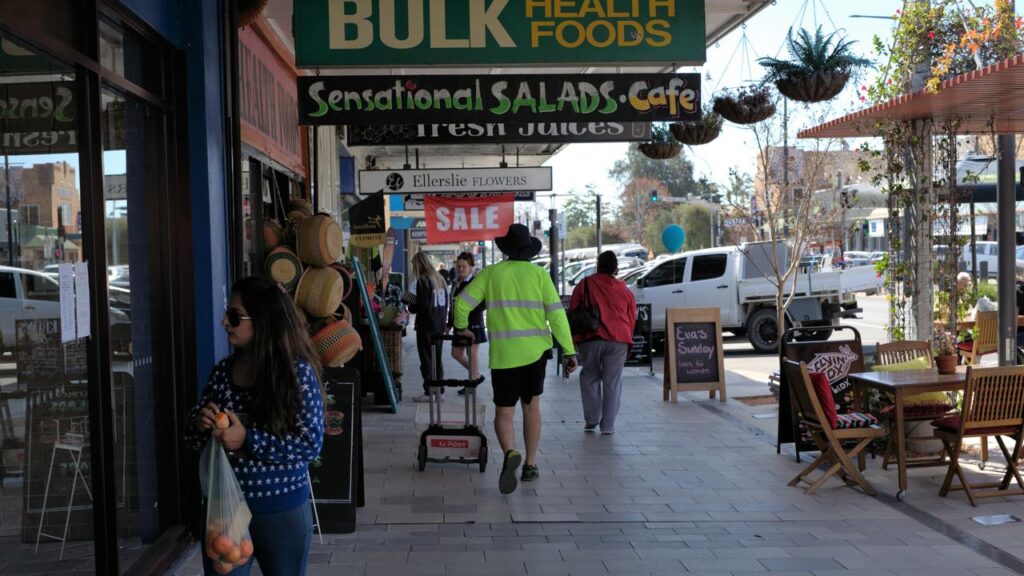Twist for top cop after drunken crash
Written by admin on November 22, 2024
A high-ranking NSW Police detective who allegedly consumed more than 20 drinks before crashing a police car in Sydney’s NorthConnex tunnel has been acquitted of high-range drink driving, but found guilty of a lesser charge.
The officer, who can be referred to only as AB, appeared before Downing Centre Local Court on Friday where a magistrate decided whether to accept the lesser charge of driving with a mid-range PCA.
Police initially charged the officer with driving with a high-range PCA after the unnamed officer allegedly crashed the car on the main arterial tunnel after a work function in May 2023 and fled the scene.
He pleaded not guilty to the allegations, and appeared before Magistrate Rachael Wong on Friday to determine whether the court would accept an agreement struck with the Crown of the lesser charge.
The Crown conceded it could not prove beyond reasonable doubt that the officer had a high-range PCA, and instead called on Ms Wong to find him guilty of the lesser offence, sparking hours of debate.
After six hours in court on Friday, Ms Wong formally ruled she could not find the original high-range PCA offence proven, and instead found the officer guilty of a charge of mid-range drink driving.
He will return before the court next year for sentence, with a second, separate charge of driving while under the influence withdrawn by the Crown following the formal findings of guilt by Ms Wong.
Despite the agreement, Ms Wong earlier questioned if the Court Attendance Notice was defective as it did not contain the PCA reading, as the court was told no blood sample had been taken after the crash.
Ms Wong said that, despite claims by the Crown, the actual reading or a range thereof was not a “particular” but an essential element of the offence needed for the court to prove it beyond reasonable doubt.
The officer’s lawyers told the court a high-range PCA would require a reading of 0.150 or above, and that in the circumstances it was difficult for the Crown to specifically determine what it was at the time.
“In a case like this where the Crown relies on the reading on the basis of a combination of circumstances and expert evidence, it might not necessarily be defective in the absence of a particular reading,” he said.
If the CAN was found to be defective, Ms Wong said she could be at fault in accepting the proposed findings under NSW Road Transport Act, under which she could find him guilty of a different offence.
In a last-minute bid to have the matter finalised on Friday, Deputy Crown Prosecutor Eric Balodis said the CAN could be amended based on an initial pharmacological report to a reading of 0.218.
He said the first report could not be proven beyond reasonable doubt as it was contradicted by a subsequent report, and it was on the amended CAN that Ms Wong found the officer guilty of mid-range PCA.
The court was told there had been a dispute between the pharmacologists, the resolution of which was that Crown could not “prove the charge of a higher range PCA, regardless of the probabilities”.
Deputy Crown Prosecutor Eric Balodis said the experts had calculated the officer’s PCA on the number of drinks and his BMI, noting “that it is beyond reasonable doubt that it was at most 0.137”.
The officer’s lawyer urged Ms Wong, upon reading the agreed facts, it would “effectively not prove the more serious offence of high-range PCA, but would prove the lesser offence of mid-range PCA”.
“There are reasons that course has been adopted … there was an offer for a mid-range PCA sometime ago but the statute of limitations prohibits the Crown from charging a mid-range PCA,” he said.
The case has been marked by an extraordinary level of secrecy, with the court making a 40-year-supresion order over the identity of the officer and any information that could lead to his identification.
The court was told despite the suppression order being in place for some time, the officer’s name may have been placed on the court registry on Friday, sparking a swift rebuke from Ms Wong and the Crown.
“It is rather extraordinary in circumstances where the matter has in fact not appeared on the court list for the past five or six occasions, the matter has been listed in this case,” Crown prosecutor Alison Graylin told the court.
“The prosecution has requested on three occasions that be rectified and that it be listed in the court list by a pseudonym and there is nothing in the suppression orders to prohibit it being listed that way.”
The court was later told it did not appear there had been any breaches of the wide-reaching suppression order, with the officer’s name confirmed to have not been online or on the physical court list.
In July, the Law Enforcement Conduct Commission made two findings of serious misconduct against the officer, being that he deliberately left the scene and was dishonest in his insurance claim form.
In its scathing report, the Commission said the officer had deliberately left the scene of the crash “to avoid being breath tested” and was treated leniently despite no evidence of interference with the case.
“The Commission found that Officer AB was treated more leniently in the way in which he was managed by his Commander and in the police review of his driving,” the Commission said in a statement.
“The favourable treatment led to other police officers losing confidence in the integrity of the NSW Police Force.”
More to come
Read related topics:Sydney







